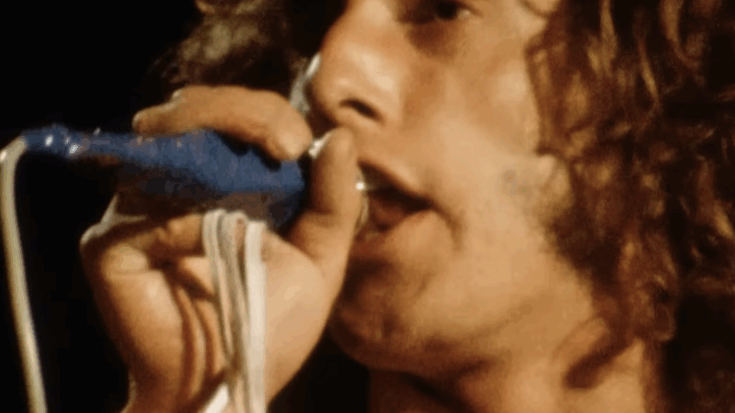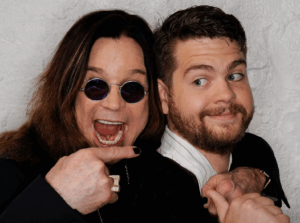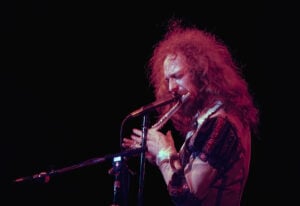The Best Rock Concerts of 1970 Every True Music Fan Remembers

via Alec Doucet / Youtube
People have varied ideas about what rock music means to them, but there’s no doubt that it had a huge cultural impact long before streaming, smartphones, and countless online distractions. Rock music wasn’t just fun back then; it was a way for people to connect, spark revolutions, and build communities before social media even existed. Live concerts from that era were the ultimate expression of that enthusiasm.
The year 1970 was especially significant. The peaceful glow of the late 1960s began to fade, and rock music became heavier, louder, and more daring. The biggest bands of the time pushed their sound to new levels on stage, giving the world some of the most memorable performances in music history. These are the shows from that year that continue to influence rock culture today.
The Who: Live in Leeds
Many rock lovers consider Live at Leeds one of the best live albums of all time. Filmed at Leeds University on February 14, 1970, the performance shows The Who at their rawest and most powerful.
By that time, the band was already on top of the world thanks to their rock opera Tommy, which had made them internationally famous. But the Leeds concert relied on little theatrics or storytelling. Instead, it delivered pure, unadulterated rock intensity. The show tore through hits like “My Generation” and mixed in unique versions of older songs, giving the audience a taste of everything the band could do. The record’s enduring fame comes from its rawness—it was never polished, and that rough edge made the concert thrilling. The Who were at their best: loud, fast, unpredictable, and completely anarchic.
The Grateful Dead at the Fillmore East
The Grateful Dead are often remembered not for individual songs or albums, but for the events themselves. One night at Fillmore East—February 13, 1970—remains legendary for Deadheads.
The band was known for long, unpredictable shows that ranged from soft acoustic music to full-blown psychedelic explorations. That night, they played four sets, moving from folk-inspired compositions to extended jams lasting into the early morning.
Long versions of “Dark Star,” “The Other One,” and “Lovelight” became their own worlds, thanks to Jerry Garcia’s improvisation and the band’s uncanny ability to communicate on stage without words. For fans, it was a near-religious experience, showcasing the magic of their live performances.
The Atlanta Pop Festival
In the early 1970s, rock music was about more than clubs and theaters—it was about massive gatherings and multi-day festivals. The second Atlanta International Pop Festival, held on July 4, 1970, was one of the era’s final major events. Organizers were prepared, but not for the sheer number of attendees. When they realized the crowd was far larger than expected, they tore down the gates and made the event free, creating one of the largest unofficial rock gatherings of its kind.
Though many big names performed, the defining moment was Jimi Hendrix’s set. Playing for roughly half a million people with his Band of Gypsies, Hendrix delivered his fiery version of the national anthem—a dramatic and culturally charged performance. It was a show that was brave, unforgettable, and historically significant.
The Isle of Wight Festival
The 1970 Isle of Wight Festival in the U.K., held in late August, was a landmark European event, attracting up to 700,000 people—the largest festival gathering in British history.
The lineup was a dream for music lovers, including Joni Mitchell, Miles Davis, and other genre-defying artists. But the rock bands truly defined the festival. The Who played a powerful set, The Doors mesmerized with their dark intensity, and Jethro Tull and The Moody Blues added legendary performances. Hendrix also appeared; it was one of his last major gigs before his death. For many, this festival marked the end of the larger-than-life rock era of the 1960s.
Led Zeppelin at the Royal Albert Hall
Led Zeppelin was already among the biggest rock bands in the world, but their 1970 performance at London’s Royal Albert Hall elevated them even further. The prestigious venue demanded energy and focus, and the band delivered in spades.
For two hours, they unleashed heavy blues, massive guitar riffs, and a stage presence that was impossible to ignore. Robert Plant’s soaring vocals and Jimmy Page’s ferocious guitar work combined to create a show that felt both wild and meticulously crafted. Decades later, recordings and photos of the concert remain prime examples of Zeppelin’s early brilliance.
A Year That Changed Rock Music Forever
It would be impossible to rank these concerts. Each had something special that made it unforgettable. What made 1970 remarkable wasn’t just the musicianship—it was the mood, the people, the culture, and the sense that rock music was creating a historic moment.
These shows continue to resonate more than 50 years later because they capture something larger than sound. They come from a period when live music felt revolutionary, and every guitar solo, every cheer from the crowd, and every moment on stage felt like the dawn of a new musical era.

















